In today’s episode, we’re diving deep into the world of sleep, especially for women navigating perimenopause and menopause.
This week, Clarissa is in conversation with Joya Van Der Laan, a board-certified nurse practitioner and the founder of Nourish House Calls. Van Der Laan has specialized in Functional Medicine for over a decade and a key area of her work is supporting women to sleep better in perimenopause and menopause.
They explore how sleep is interconnected with hormone balance, stress, and overall health. Joya emphasizes the need for quality sleep and suggests tracking sleep patterns using devices like the Oura Ring.
They also discuss the role of nutrition, particularly in managing blood sugar levels, and how it can impact sleep.
The conversation looks into the importance of our hormones in supporting better sleep, including managing stress hormones and the role and importance of progesterone in promoting better sleep and relaxation. It also explores the impact of estrogen on sleep quality.
Throughout the conversation, Joya highlights the need to treat the whole person and consider the interconnectedness of various factors in improving sleep quality. How lifestyle factors such as exercise, alcohol, and strategies for managing the need to urinate during the night all play important roles in ensuring a good night’s sleep.
Joya emphasizes the importance of a holistic approach to sleep, including hormone optimization, nutrition, and the role of supplements.
She encourages listeners to advocate for themselves and seek solutions for better sleep.
Takeaways
Sleep is a crucial aspect of overall health for women in perimenopause and menopause.
Tracking sleep patterns using devices like the Oura Ring or Whoop Strap can provide valuable insights into sleep quality.
Nutrition plays a significant role in sleep, particularly in managing blood sugar levels.
Managing stress is essential for better sleep, and practices like mindfulness and breathwork can help activate the parasympathetic nervous system.
Progesterone is a key hormone that promotes better sleep and helps balance cortisol levels. It is also important for sleep and relaxation as it is a precursor for GABA, a neurotransmitter that plays a role in sleep.
Treating the whole person and considering the interconnectedness of various factors is crucial in improving sleep quality.
The balance of estrogen can affect sleep, particularly its role in hot flashes, night sweats, and cortisol spikes.
Exercise should be approached with caution, as intense workouts can drain the adrenal bank account and disrupt sleep. Weightlifting and muscle-building exercises are beneficial for hormone balance and healthy aging.
Alcohol consumption can negatively impact sleep quality and overall health. It is important to be mindful of the effects of alcohol and make informed choices.
Proper hydration, including electrolyte balance, can help manage the need to urinate during the night. Pelvic floor health and vaginal tissue health are also important considerations.
Advocating for oneself and seeking solutions for better sleep is crucial, as sleep issues during menopause can be addressed and improved with the right approach.
🔗 Links & Resources:
Follow Joya Van Der Laan: Nourish House Calls https://nourishhousecalls.com/
Grab a copy of Clarissa's new book Beyond Hormones: 7 Holistic Ways to Thrive Through Menopause https://bit.ly/BeyondHormones


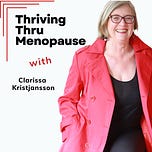

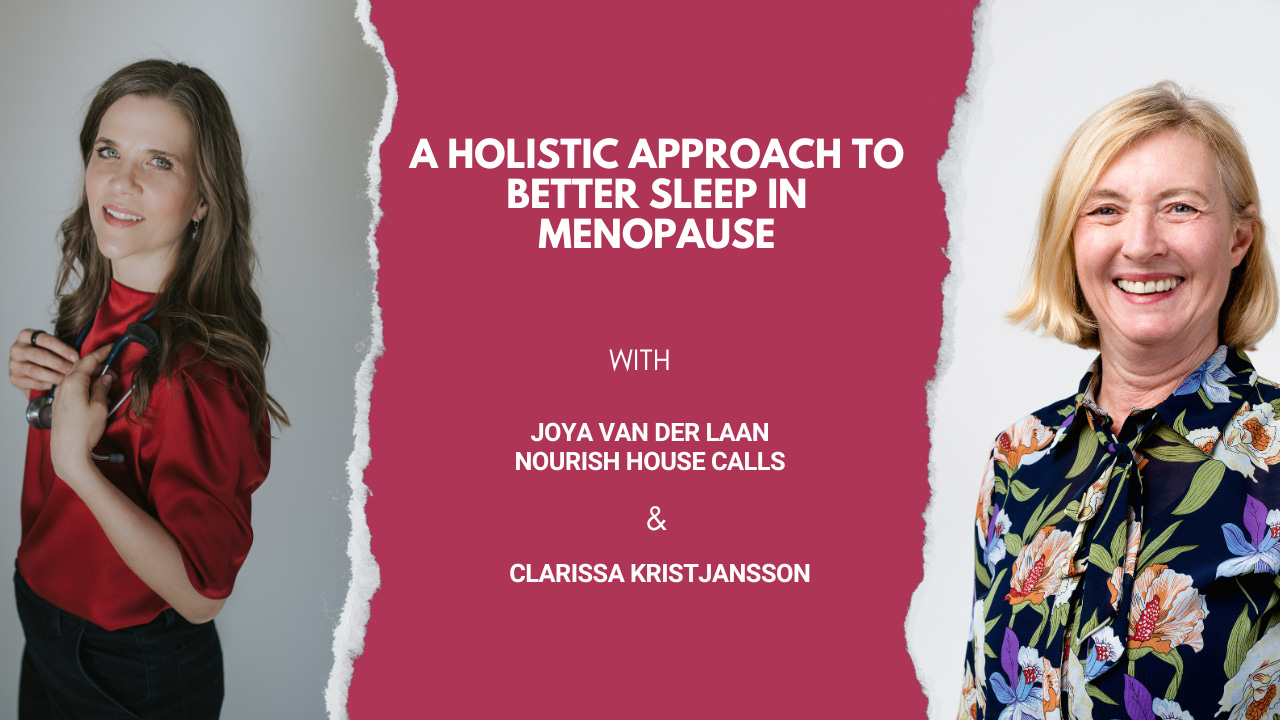



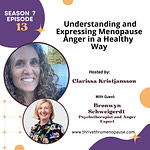


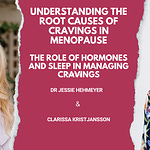
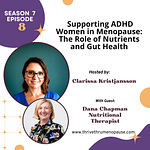
Share this post